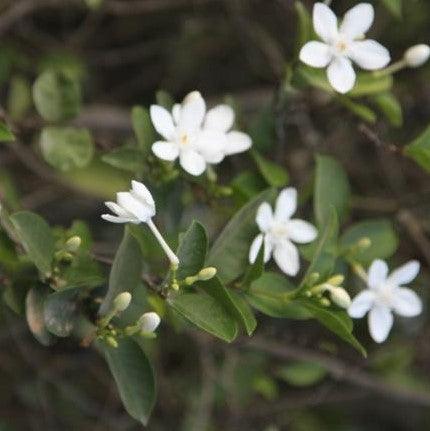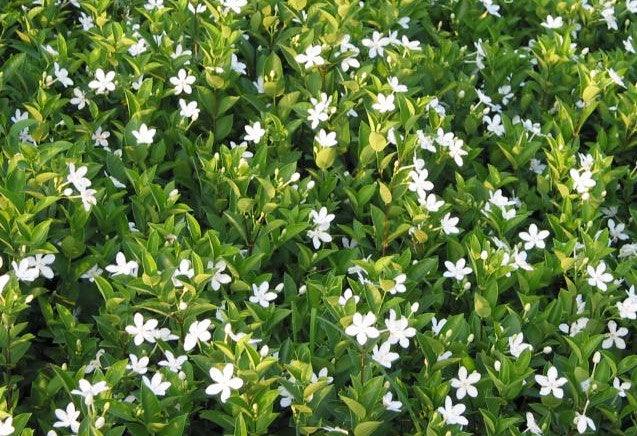-
Plant Description:
-
Wrightia antidysenterica is a plant species in the Apocynaceae family, native to tropical Asia. It is a small to medium-sized evergreen tree or shrub that grows up to 15 m tall. The leaves are glossy, dark green, and elliptical in shape. The flowers are small, white, and fragrant, and are borne in clusters. The fruit is a small, oblong, fleshy drupe that turns black when ripe.
Wrightia antidysenterica has been traditionally used in Ayurvedic medicine to treat a variety of ailments, including dysentery, diarrhea, and other digestive disorders. The plant is also used to treat skin disorders and wounds, and as a laxative.
It is also use in landscaping, it is drought and salt tolerant.
-
Growing tips:
- -
Wrightia antidysenterica is a hardy plant that can tolerate a wide range of growing conditions. However, it does best in well-drained soils that are rich in organic matter, and in a sunny location.
Watering: This plant does not require a lot of water, and it is drought tolerant once established. It is best to water it deeply, but infrequently. It is important to note that the plant should not be over-watered or allowed to sit in waterlogged soil, as this can lead to root rot.
Fertilizing: The plant can benefit from regular applications of a balanced, water-soluble fertilizer during the growing season. Fertilizing should be reduced or stopped in the winter months.
Pruning: This plant can be pruned to control its size and shape, and to encourage bushiness. Prune it after blooming to encourage new growth and more flowers.
Propagation: Wrightia antidysenterica can be propagated by cuttings or by seed. Rooting hormone can be used to increase the chances of success when propagating by cuttings.
Overall it is considered a low maintenance plant and easy to grow, it is hardy and tolerate different climates as long as it has well-drained soils.
-
Benefits:
-
Wrightia antidysenterica, commonly known as Indian oleander, is a plant that has a long history of traditional use in Ayurvedic medicine. Some of the reported benefits of this plant include:
-
Digestive health: The plant has been traditionally used to treat a variety of digestive issues, such as dysentery, diarrhea, and other gut-related disorders.
-
Wound healing: The plant's leaves have been used to treat skin conditions, such as wounds and sores.
-
Anti-inflammatory properties: Some studies have shown that Wrightia antidysenterica has anti-inflammatory properties that may help reduce inflammation in the body.
-
Antimicrobial properties: The plant has been traditionally used to treat a variety of infections and has been found to have antimicrobial properties in some studies.
-
Cardiovascular health: Some studies have also reported that the plant can help in cardiovascular health through antioxidant properties.
-
Cancer-fighting properties: The plant has been found to contain compounds that might help fight cancer.
It is worth to mention that most of these benefits are based on traditional uses, while some studies were conducted on cell cultures and animals, and further research is needed to confirm these potential benefits in humans.




